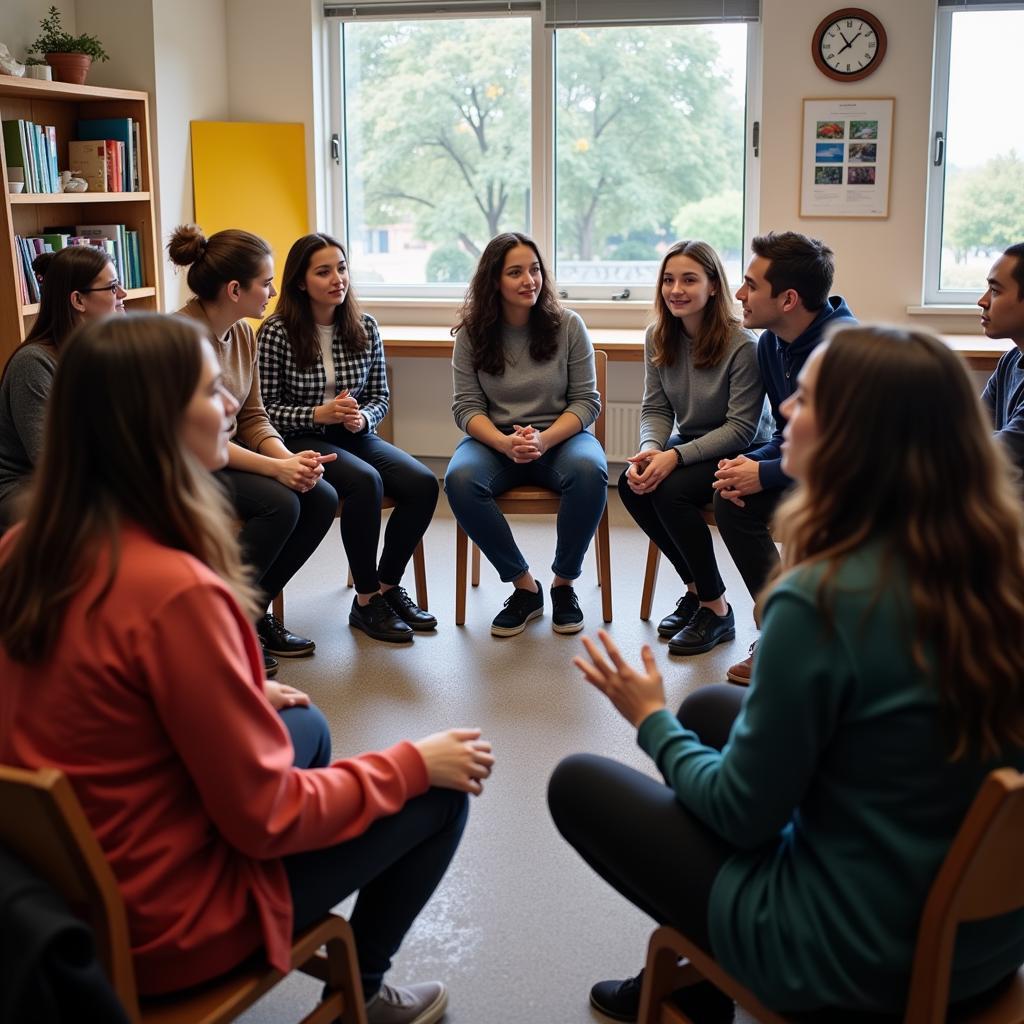The term “Higher Society” often evokes images of wealth, status, and exclusivity. But what does it truly mean to cultivate a “higher society?” At its core, it’s about fostering a community that prioritizes empathy, compassion, and understanding above all else. This goes beyond material possessions and social standing, reaching towards a shared goal of creating a more just and equitable world for everyone.
 People coming together to build a supportive community
People coming together to build a supportive community
Redefining “Higher Society”
For generations, the concept of a “higher society” has been intertwined with elitism and privilege. However, as our understanding of social structures and inequalities evolves, it’s crucial to challenge these traditional notions. A truly “higher society” is one that values:
- Inclusivity: It embraces diversity in all its forms, recognizing that every individual, regardless of background, holds inherent worth.
- Empathy: It encourages understanding and compassion for others, even those with different experiences and perspectives.
- Social Responsibility: It promotes active participation in creating positive change, addressing issues like poverty, inequality, and injustice.
This means shifting our focus from individual achievement to collective well-being. It means recognizing that true progress requires us to uplift one another and create a world where everyone has the opportunity to thrive.
The Role of Education in Shaping a Higher Society
Education plays a vital role in shaping a “higher society.” It’s not just about academic excellence, but about cultivating critical thinking skills, empathy, and a strong sense of social responsibility. Here’s how we can leverage education to foster a more just and equitable world:
- Promote Inclusive Learning Environments: Schools should be safe and welcoming spaces for all students, regardless of their background or beliefs.
- Integrate Social-Emotional Learning: Curriculum should incorporate social-emotional learning, teaching students essential skills like empathy, conflict resolution, and responsible decision-making.
- Encourage Civic Engagement: Schools can empower students to become active and engaged citizens by providing opportunities for community service, advocacy, and leadership development.
 Students engaging in a lively discussion about social issues
Students engaging in a lively discussion about social issues
The Power of Connection in a Digital Age
In our increasingly interconnected world, technology can be a powerful tool for fostering a “higher society.” Online platforms can facilitate dialogue, bridge cultural divides, and amplify marginalized voices. However, it’s important to be mindful of the potential pitfalls of the digital landscape:
- Combating Online Hate and Misinformation: We must actively work to create a safer and more inclusive online environment by addressing hate speech, misinformation, and cyberbullying.
- Promoting Digital Literacy: Equipping individuals with the skills to critically evaluate online information is crucial in combating the spread of misinformation and promoting responsible digital citizenship.
- Harnessing the Power of Storytelling: Sharing stories of resilience, hope, and compassion can foster empathy and understanding across cultural and geographical boundaries.
Building a Higher Society Together
Creating a “higher society” is not a utopian dream, but an ongoing process that requires collective action and a commitment to positive change. It’s about challenging the status quo, dismantling systems of oppression, and working together to build a world that reflects our shared values of justice, equity, and compassion.
By embracing these principles, we can create a society that uplifts all its members and paves the way for a brighter future.
Need support in building a higher society? Contact us!
Phone: 02043854663
Email: [email protected]
Address: Khu 34, Bắc Giang, 260000, Việt Nam.
Our dedicated customer support team is available 24/7 to assist you.